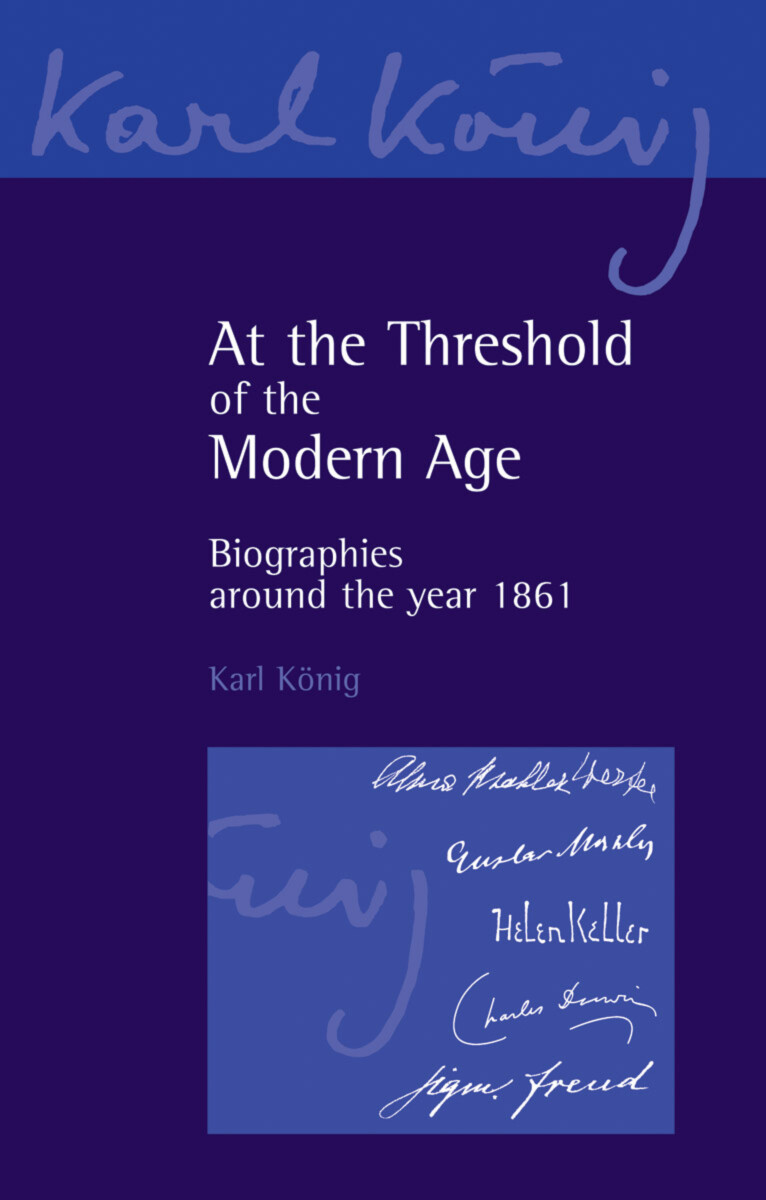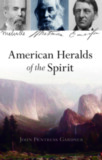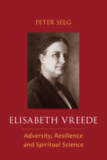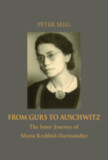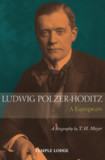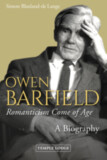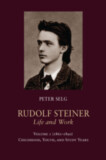- Publisher
Floris Books - Published
20th January 2012 - ISBN 9780863158452
- Language English
- Pages 400 pp.
- Size 5.5" x 8.5"
Karl König explores the personal stories of twenty-nine pioneers whose work and experiences helped shape that era. They include artists and writers, social reformers, philosophers and political activists, and scientists. He considers how they responded as individuals to the challenges of the changing world around them. His insights and conclusions are relevant for us today, as we face our own time of change and upheaval.
The biographies include:
- Helen Keller (1880–1968)
- Samuel Hahnemann (1755–1843)
- Sigmund Freud (1856–1939)
- Lou Salomé (1861–1937)
- Gustav Mahler (1860–1911)
- Charles Darwin (1809–1882)
- Adolf von Hildebrand (1847–1921)
At the Threshold of the Modern Age is volume 10 in the Karl König Archive series.
C O N T E N T S:
Adalbert Stifter (1805–1868) Austrian writer and painter
Samuel Hahnemann (1755–1843) Founder of homeopathy
Helen Keller (1880–1968) Deaf-blind author and political activist
Ernst von Feuchtersleben (1806–1849) Austrian physician and philosopher
Josef Breuer (1842–1925) Austrian physician who laid the foundations of psychoanalysis
Sigmund Freud (1856–1939) Founder of psychoanalysis
Justinus Kerner (1786–1862) German poet and medical writer
Rudolf Virchow (1821–1902) German anthropologist and biologist
Wilhelm Dilthey (1833–1911) German philosopher
Rudolph Wagner (1865–1864) German anatomist and physiologist
Alma Mahler (1879–1964) Austrian socialite
Lou Salomé (1861–1937) Russian-born psychoanalyst and writer
Gustav Mahler (1860–1911) Austrian-Bohemian composer
Marie Eugenie delle Grazie (1864–1931) Writer and dramatist
Karl Eugen Neumann (1865–1915) Translator of Buddhist writings
Robert Owen (1771–1858) Industrialist and social reformer
Harry Graf Kessler (1868–1937) Anglo-German diplomat and arts patron
Charles Darwin (1809–1882) English naturalist
Charles Grant (1841-1889) Scottish poet and literary critic
Adolf von Hildebrand (1847–1921) German sculptor
Anton Dohrn (1840–1909) German Darwinist
Hans von Mareés (1837–1887) German painter
Carl Ludwig Schleich (1859–1922) German surgeon and writer
Karl König
Dr. Karl König (1902–1966) born on September 25th 1902 in Vienna, Austria, the only son of a Jewish family who owned a shoe shop. He studied zoology, biology, and medicine at the University of Vienna, graduating in 1927. During his studies on embryology, König encountered the works of Rudolf Steiner through Goethe's scientific writings. He immediately identified with Steiner and was soon acquainted with a number of his followers, including Ita Wegman.
Upon graduation, König was offered several high-profile positions in Vienna, but instead accepted an invitation from Ita Wegman to join her clinic in Arlesheim, Switzerland.
König's time at the Clinic would shape the Camphill movement. It was here that he met his wife and co-founder, Tilla Maasberg, and it was here that he first witnessed the Advent Garden. During this festival, during which children with learning disabilities circle a spiral of moss, lighting a candle from a large central beacon, he promised to dedicate his life “to the care and education of these children.”
Following his time at Arlesheim, König moved to Germany and was involved in founding the Pilgramshain Institute—one of the early curative educational (therapeutic) centers based on anthroposophy. However, due to the political pressure of the Nazi regime, König was forced to leave Germany in 1936. He returned to Vienna, where he operated a successful medical practice and led anthroposophic study groups until 1938.
Fleeing Austria after Nazi annexation in 1938, König became part of a small group of doctors, teachers, and artists to be granted political asylum in the United Kingdom in 1939. König moved to Aberdeenshire, Scotland, where this group founded a home for children with learning disabilities, which became the beginning of the Camphill movement. After World War II, more schools were established, as well as curative education villages for adults with disabilities, based on the ideal of working together as a community.
In the following decades, König's Aberdeenshire community grew and expanded into Britain, Europe, and North America, becoming the Camphill movement we know today. During this period, König worked tirelessly to help children and adults with special needs through publications, talks, and seminars—as well as by establishing communities around the world.
Karl König returned to Germany in 1964 and began yet another community, this one near Überlingen, on Lake Constance (Bodensee), where he died in 1966.


